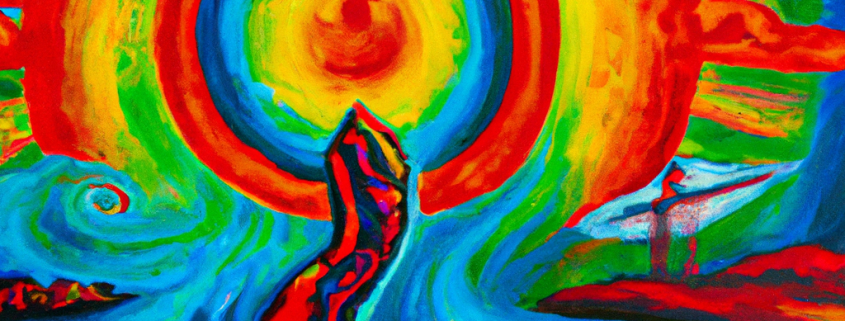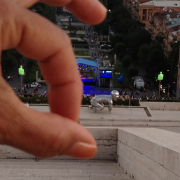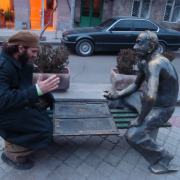Prejudging Prejudice toward Religion
Armodoxy for Today: Packaging the Supernatural
At the end of the last century, musician/guitarist extraordinaire Carlos Santana put out an album of music under the title Supernatural. The album was a huge success, including breaking the record for most Grammy Awards, which up to that time was held by legendary pop star Michael Jackson. The album featured artists from CeeLo Green, to Dave Matthews to Eric Clapton, and many others. Santana used the name “Supernatural” for his album because it was beyond natural, that such greats would come together to put together this music. He felt that the call to come together was also supernatural.
Often, we find ourselves in unexplainable situations, and when we run out of those explanations we appeal to the supernatural. For instance, how is that that all of these top, renowned musicians would come together? How is it that together they would produce such music that it would win critical and popular acclaim? Yes, we can say that it was a talented group of musicians, to say the least, but Carlos Santana chose to say the most, and said it was supernatural.
Some will doubt that there was anything supernatural. Others will swear by it. While still others, will not even care how the music was produced, as much as it was good music which they are able to enjoy it. In other words, not everything needs to be analyzed. But over the last few weeks we’ve been looking at mystery, at practical and impractical approaches to the big issues that confront us, and most recently with the question of genocide, which is being waged in Artsakh. To date, all of the solutions that are being proposed are on political grounds, even with the request for aid from governments, including superpowers. But the option for supernatural solution is pushed to the wayside by the prejudice we harbor toward the religious and religion.
Before the Civil Rights movement and legislation in the 1960s, Black Americans were asked (or forcibly placed) to the back of the bus. That was “their place,” they were told by people who pre-judged them, which is what “prejudice” means – to pre-judge. Because religion has not presented the supernatural in an accessible manner, or, as Einstein alluded, “our dull faculties” are not tuned to understand senses beyond us, we harbor these prejudices.
It is not enough to speak about the supernatural, it has to be presented properly. Packaging and presentation are important. At the beginning of today’s message, I placed our story at the turn of the century. The year was 1999, slightly over 20 years ago, but to present the supernatural, terms like “last century” or “turn of the century” will attract the listener into a frame of reference that can’t be matched with merely “20 years ago.”
Within that packaging, the effects of the supernatural have to the presented as well. Think of Santana’s album; finding the effects is easy because it is the product itself. Armodoxy strives to make the effects of the supernatural just as easy to find in the work of the Church. The fact that that Armenian live life is more than a miracle of the supernatural. A group of people who have no military strategy, no military, no political might, no political ally, and not only live but thrive can only be attributed to a supernatural force. It is on the same scale as Santana’s claim of a supernatural force bringing the musicians and music together. Today’s challenge is to drop our prejudices and not confine religious experience to “their place” where “they belong.
Supernatural occurrences are more common than we are led to believe, if we are willing to look within. Yesterday, we spoke about dropping the ego. With the ego dropped, looking within is even easier.
We take another break here today, only to continue tomorrow. Pray today for introspection. Lord, help me to look within. Allow me to inventory my life and see the true miracles, including my life, my family and the relationships that sustain me. Amen.

 2023 Fr Vazken
2023 Fr Vazken 2014 Fr. Vazken
2014 Fr. Vazken



 2009 Fr. Vazken Movsesian
2009 Fr. Vazken Movsesian

 2014 Fr. Vazken
2014 Fr. Vazken 2011 Fr. Vazken
2011 Fr. Vazken
Leave a Reply
Want to join the discussion?Feel free to contribute!